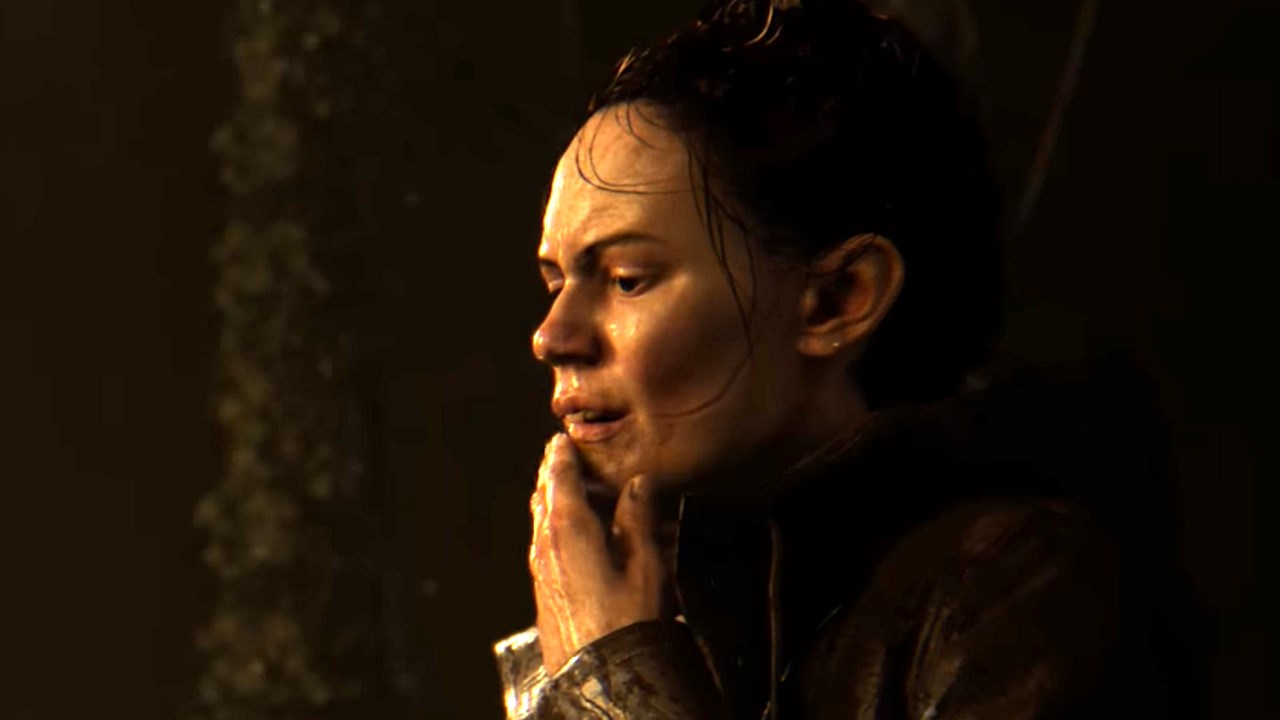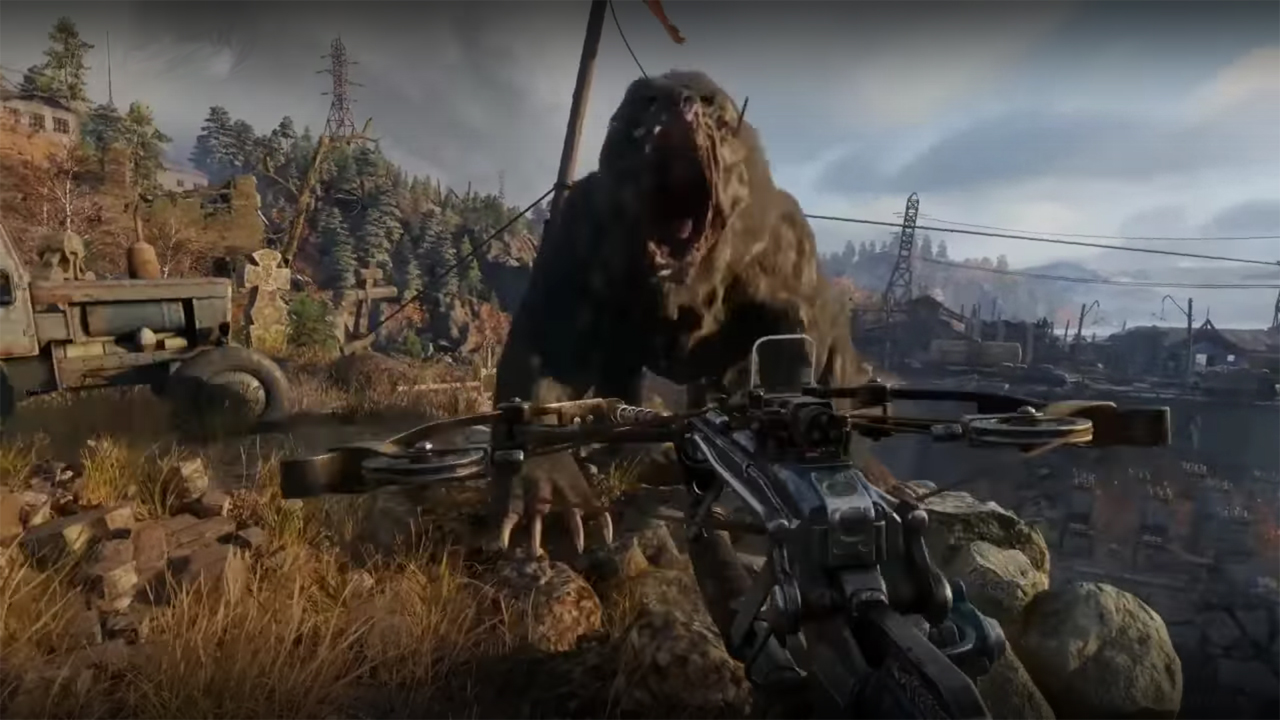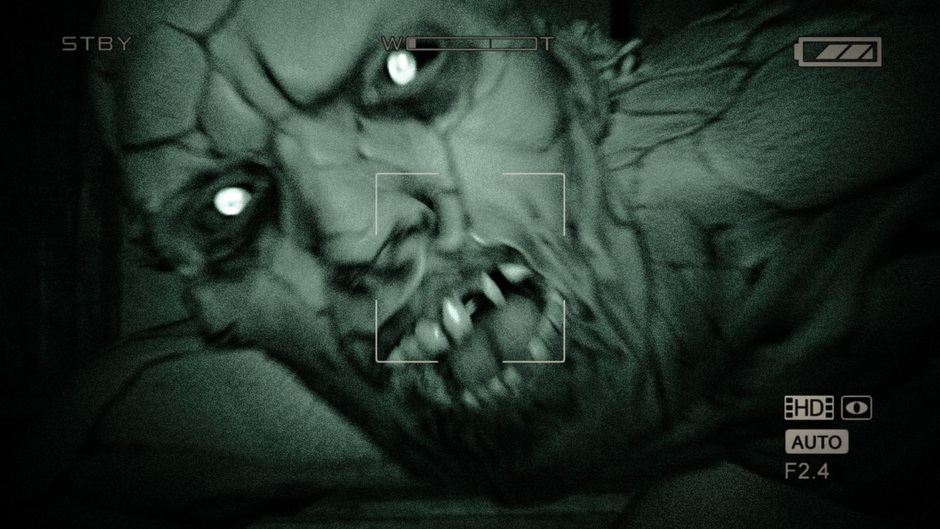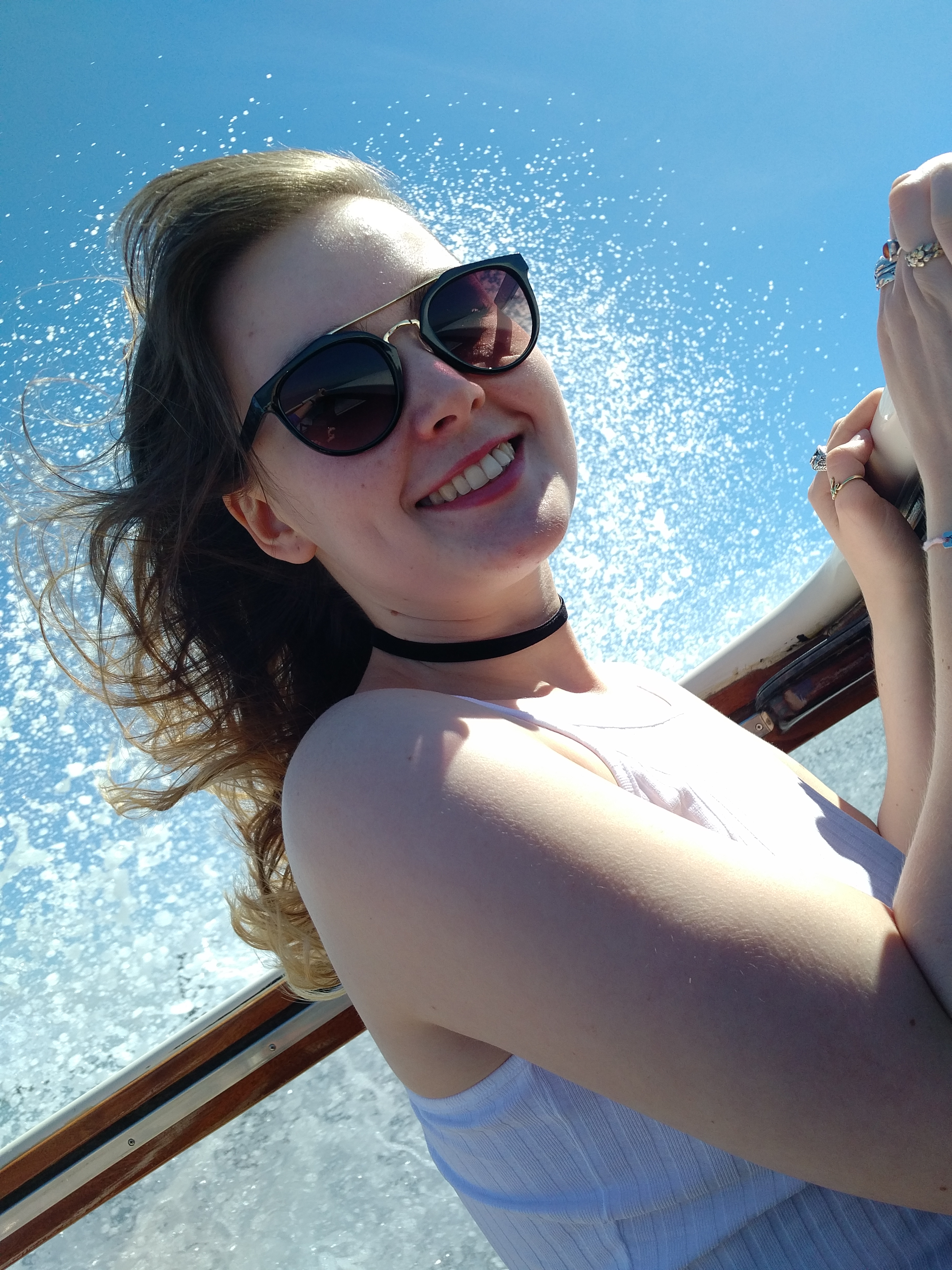Can we all agree that gaming's evil post-apocalyptic cannibal trope has to stop?
Cannibals are always the baddies in post-apocalyptic games, and are in dire need of the remake treatment.
There’s always two sides to every story. With post-apocalyptic cannibals, one half of that story is easy to tell. After all, we tend to assume that only evil people could eat their own kind. But that's not entirely true. Under the right circumstances, anyone can become a cannibal. You just need to hear the other side of the story. Just think about it: we’re in a gaming age where familiar titles are being redefined to make their protagonists and worlds more insightful. God of War has evolved its testosterone-charged Kratos into an aging father, Resident Evil 7 concentrated on the impact of the T-Virus on one family, and don’t even get me started on Legend of Zelda: Breath of the Wild. So can we please, please take a step back and stop casting cannibals as what feels like the obligatory baddie of post-apocalyptic games?
Too often cannibalism is used as a cheap reveal, like the game has yanked back a velvet curtain with a practically audible “a-HA!”. Post-apocalyptic games simply don’t spend enough time exploring why they turned to cannibalism. Yes, if people had got a taste for humans in a game about a normally-functioning society that hadn’t suffered a cataclysmic event, things would be different. Those weirdos have chosen to eat people when there are supermarkets nearby selling perfectly good steak. Yet here’s the thing: post-apocalyptic games are all about survival. They’re about scraping together what’s left of civilisation and using it to last until tomorrow. And the day after that. And so on. In these kind of games, cannibals take a step that wouldn’t be hard to understand - if they were given the remake treatment.
The reality of cannibalism
Usually cannibals are despicable, and it’s no surprise. Their eating habits mean you don’t have any trouble assuming that they lack humanity. Treating humans like cattle to be slaughtered and eaten goes against most of our instincts, because no matter how you spin it, everyone sees themselves as an individual. Everyone has their own hopes, dreams, fears, desires, and for all of that to be chucked away for the sake of a meal is, well, disgusting. So what could make that suddenly ok during an apocalypse? A number of things, actually.

Resorting to cannibalism is a difficult decision. Back in 1972 the Andes Flight Disaster made it apparent just how hard it is to take the ultimate step towards survival. When Uruguayan Air Force Flight 571 took off from Montevideo, none of its passengers or crew could predict what was going to happen. The airplane crashed in the Andes, killing 12 of the 45 on board. Six more died in the next two weeks, and once their rations had run out the remaining survivors resorted to eating the cotton from the plane seats and leather. When they started to fall ill from ingesting things so plainly not meant for human consumption, there was only one other option left if they wanted to survive.
Roberto Canessa, one of the survivors and a medical student at the time, spoke about what happened when they realised they’d have to eat the dead. “The bodies of our friends and team-mates, preserved outside in the snow and ice, contained vital, life-giving protein that could help us survive. But could we do it? We wondered whether we were going mad even to contemplate such a thing. Had we turned into brute savages? Or was this the only sane thing to do?”. In the end, it was the only thing they could do. Small strips of flesh were laid out to dry in the sun, and it was up to each individual survivor to choose whether to eat their piece or not.
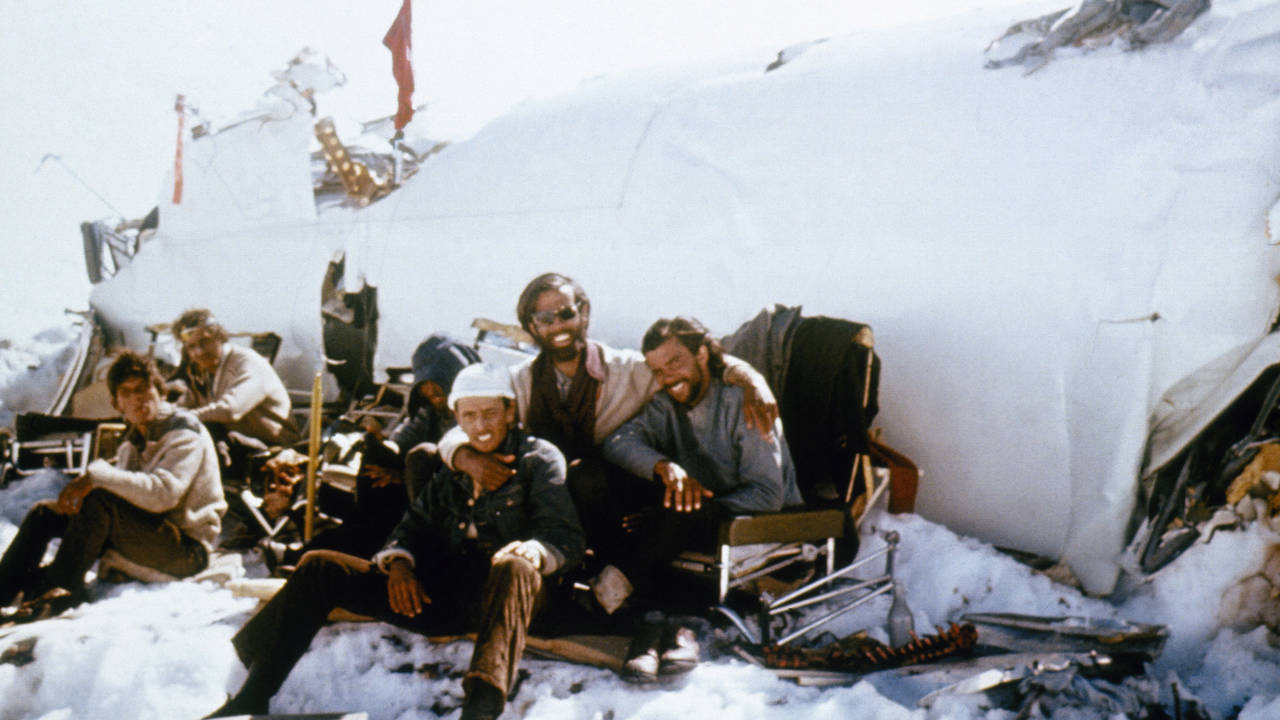
You’ll understand why seeing games use cannibalism as a cheap bit of sensationalism doesn’t seem fair. Helpfully The Last of Us and The Walking Dead have already given us two types of post-apocalyptic cannibals who break the mould by making their meat-loving groups a bit more sympathetic. It results in some characters who are as unsettling as they are progressive. It’s a good thing, I promise.
The Last of Us and safety in numbers
Oh, David. You seemed so normal at first. The Last of Us’ chief antagonist in the winter chapter is a cannibal, but not the kind that brandishes a buzz saw like that guy who microwaves someone’s head in Outlast. David is calm. Intelligent. Easy-going. Even though he talks to Ellie in front of a butchered corpse, he somehow comes across as reasonable. Neil Druckmann even told Nolan North not to play a bad guy, as David had to be charismatic enough for people to trust him. Damn, North does a good job. First pointing out that she and Joel have killed dozens of men, he laughs when she said they didn’t have a choice. According to him, they both kill to survive. He just makes sure to take care of his flock by any means necessary. You’d almost forget that David’s talking about chopping up humans. Almost. Survival is at the centre of his cannibalism, but that word is the closest thing we get to an explanation. Ellie doesn’t confront him about the fact that his group eats their kills once they’re dead, or ask how he rationalises killing the innocent travellers they find.
Weekly digests, tales from the communities you love, and more
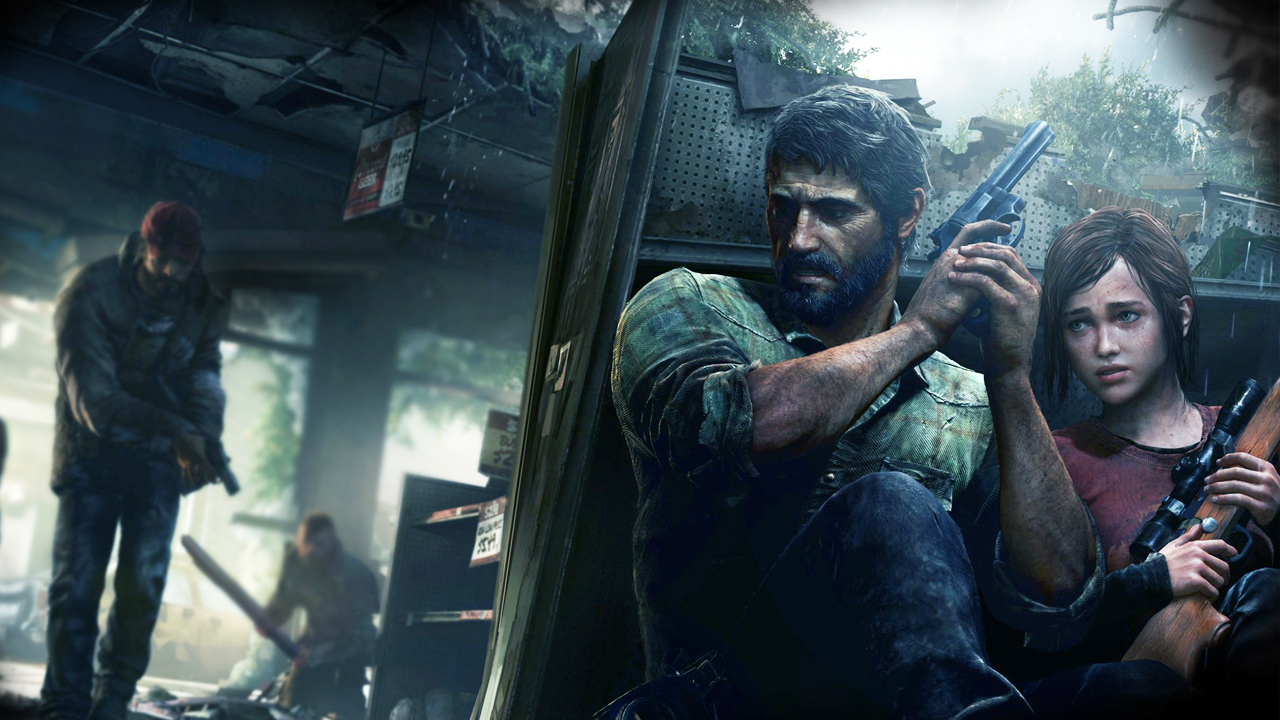
Although David isn’t the only one at fault. His group is composed of men, women, and children who have all decided that hunting their own kind is the only way to survive. A pang of guilt might even hit you when one of them attacks Joel with a shotgun, hollering about Joel killing his friends. They all obviously care about each other, yet that’s not the only thing that makes these kind of cannibals a step in the right direction. When you’re sneaking through the snow-strewn camp as Ellie, you can hear other members of the group talking about putting David’s leadership to a vote. The people he leads are resolutely human: not vicious, thoughtless killers but people who debate who should lead them, and perhaps even more disturbing - people who are part of a democracy, and have agreed to eat human meat by consensus.
Everyone often thinks that cannibals are lone deviants, like Red Dead Redemption’s Randall Forrester, who lives in the hills away from civilisation. You’d assume they couldn’t operate in groups (especially not ones with something as reasonable as democracy). Surely they wouldn’t be able to find more people who don’t mind eating human flesh? Wrong. Naughty Dog knows that anyone can become a cannibal, if the circumstances are right. However, in The Last of Us you never see any of the children and only one woman. It’s a shame, as showing us the entire group would make you think twice about killing everyone in sight, and certainly prove that anyone can become a cannibal.
Telltale’s The Walking Dead and cannibal logic
Whereas David has an entire group who have decided eating human meat is a-okay, Telltale’s The Walking Dead does something altogether different. In its Starved to Death episode, Lee’s group comes across the St John Dairy Farm. Owned by the charmingly wholesome St Johns, at first it seems like a paradise. It’s not. The St John family is made up of only three people: Brenda, the matriarch, and her two sons Danny and Andrew. They’re a tight-knit family who have realised that if you eat human meat from a corpse, it’ll be tainted with the zombie virus - but cutting it from someone who’s alive and then eating it is a-okay. Of course.
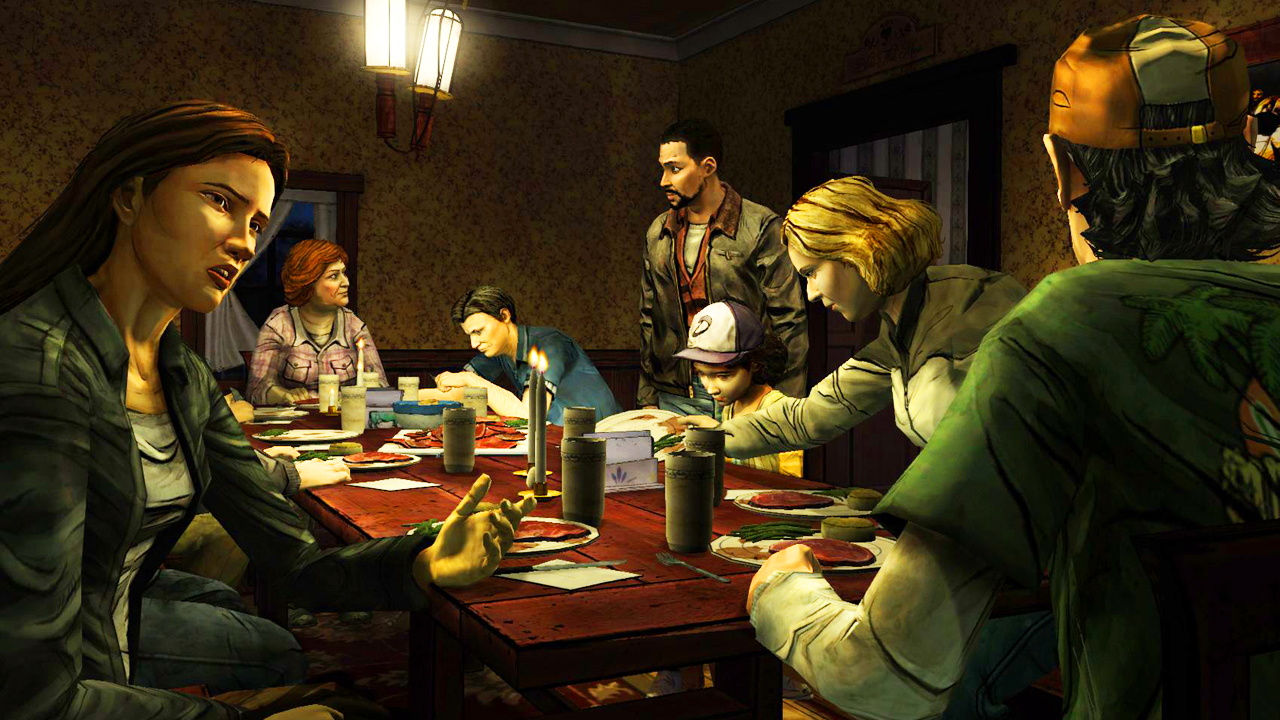
What makes the St Johns brilliant is that they explain why they decided to start eating people. Their reasoning goes far deeper than David’s survival argument. Once their secret is out, Brenda explains to Lee that growing up in rural Georgia meant that she was taught to waste food. Seeing zombies shamble around eating people, eating perfectly good meat, was too much for her. Her and her boys simply thought they could put that meat to better use...even if it was very much alive when they first found it. When I spoke to the St John’s creator Mark Darin, he said that for them, seeing the meat go to waste “is a greater tragedy than surviving on the meat of human beings”. And you’d never guess at their source of meat, as unlike The White Glove Society in Fallout: New Vegas, the St Johns look completely normal.
So whereas there’s a reasonable (well, as reasonable as you can get when it comes to eating innocent people) explanation for the St John’s cannibalism, like in The Last of Us they’re not all entirely sympathetic. Even though this wasn’t mentioned in the game, Darin revealed that Danny St John was a serial killer before everything went haywire. “It’s his mentality, his sociopath-ness that he’s able to bring his family around to what it takes to survive [...] He can add that perspective because he’s been outside of society and outside of these constraints for most of his life”.
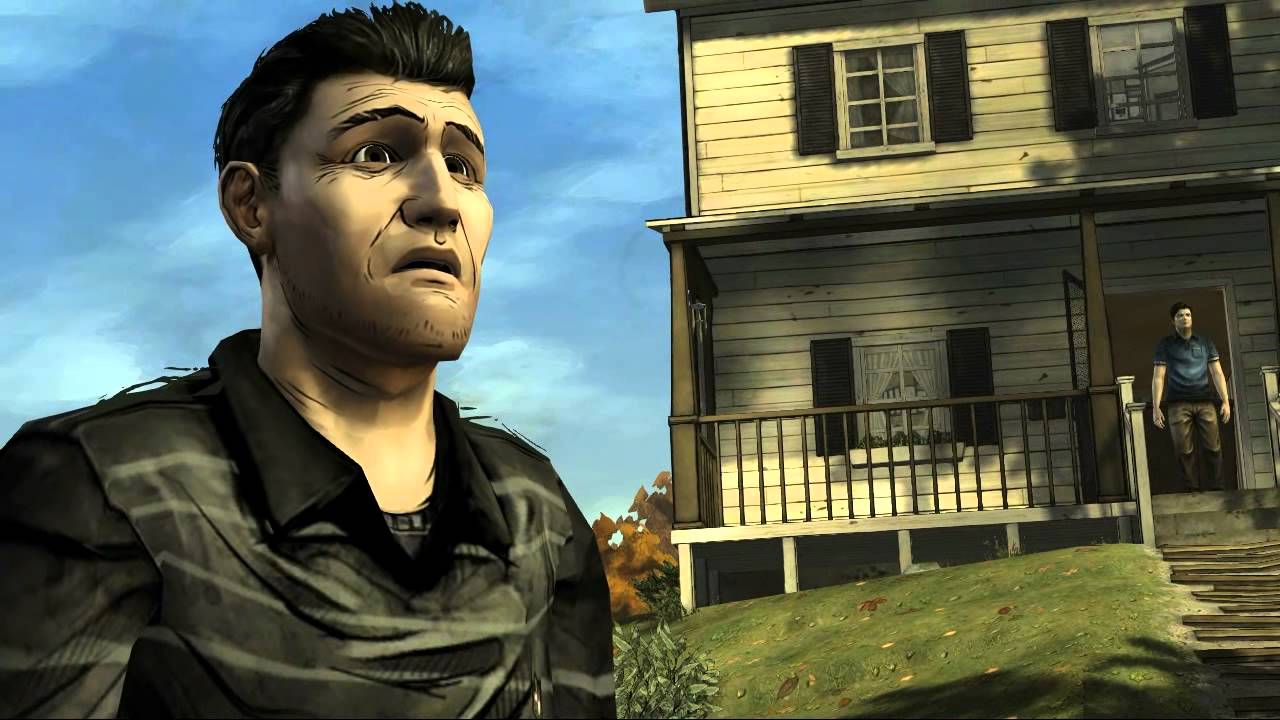
In both The Walking Dead and The Last of Us there’s at least one character who’s a straight-up creep. David is implied to be a hebephile (look it up: it’s not good), and Danny is a serial killer. Both of them are distanced from normal behaviour, which then makes it easier to transition to cannibalism. Yet this feature is what’s holding cannibals back from being sympathetic. After all, the Andes Flight Disaster proves anyone can turn into a cannibal.
Can cannibals be sympathetic?
The Last of Us and The Walking Dead have got us off to a good start. That is, except for the whole eating-innocent-people thing. Like The Family in Fallout 3, what if the next post-apocalyptic cannibals we see only kill people who had done wrong? Bandits. Murderers. Or they could just eat people who were already dead. To sympathise with cannibals there has to be a balance between understanding the need to survive and why they’d make certain choices. If they only targeted people who were threatening others, making that final choice to get out your knife and fork in a game could be that bit easier. You could argue that they had it coming. Could you see things from a cannibal’s point of view? You might want the answer to be no, but be careful. Post-apocalyptic games could make it easier than ever to tell the other side of the story.
While here at GamesRadar, Zoe was a features writer and video presenter for us. She's since flown the coop and gone on to work at Eurogamer where she's a video producer, and also runs her own Twitch and YouTube channels. She specialises in huge open-world games, true crime, and lore deep-dives.
